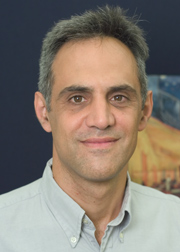Recently elected Pope Francis, who was born in Argentina, is the first pontiff born outside of Europe, and the first Latin American pope. Francis has a well-deserved reputation as a humble man who rides the subway and ministers to the growing number of slum dwellers in Buenos Aires. Many have also characterized him as either a populist conservative or a moderate conservative.

The fact that Francis was a ranking member of the clergy during the last dictatorship complicates things. Since at least the 1920s, the Catholic Church in Argentina has been among the most reactionary in all of Latin America. Starting just after 1917, sectors of the Church hierarchy made strategic alliances with the military and provincial. Every military coup in Argentina from 1930 through the last one in 1976 enjoyed the support of the majority of the bishops. Beginning in 1934, the military was made into a separate diocese of the Church.
During the dictatorship of 1976 to 1983, the military was responsible for the deaths of nearly 30,000 civilians. The Argentine church emerged from the carnage with a decidedly mixed reputation. In the worst cases, clergy absolved those engaged in state-terror and, in at least one case, engaged in acts of torture. On the other side of the coin, there were parish priests, and at least one bishop, who because of their work with the poor or because of their advocacy for the detained were themselves detained, tortured and murdered.
Where does Francis fit into this complicated story? The evidence available thus far suggests that he belongs somewhere between the two poles. This seems consistent with the view of Francis as a pragmatist.
Argentine 1980 Nobel Peace laureate Adolfo Pérez Esquivel, who is a devout Catholic, observed that Francis, unlike many bishops in Argentina, was not an accomplice to the military. The leadership of the Mothers of the Plaza de Mayo, a group founded in 1977 by the mothers of disappeared people, pointed out that many priests affiliated with liberation theology fought and died to protect their parishioners. Francis was, they note, not one of them.
The case that has dogged the pope since the mid-1970s is that of two Jesuit priests who the military abducted and tortured. Judge Germán Castelli, who investigated the case, stated that the pope, who at the time was provincial of the Order, worked to get the priests released, including meeting several times with leaders of the junta. Horacio Verbitsky, who has researched the Argentine church during the dictatorship, disagrees and believes that Bergoglio protected some priests while he let others fall into the hands of the military. As the story continues to develop, I’m left with the impression that the charges of complicity probably have no merit. He may well have worked behind the scenes on behalf of these men and others. But since the return of democracy he has not been a voice calling for investigations of crimes committed.
He has spoken openly and passionately about the plight of the poor in Argentina and about the growing gulf between the rich and the poor. He opposed the Argentine marriage equality act — yes, Argentines of the same sex may marry anywhere in the republic — but was willing to entertain an expansion of domestic partnership laws. He has discussed the idea of clergy marrying. My sense, however, is that one should not expect any dramatic changes from the Vatican during his tenure. We’ll see.
Jonathan Ablard is an associate professor and coordinator of the Latin American Studies Program at Ithaca College. Email him at [email protected].







